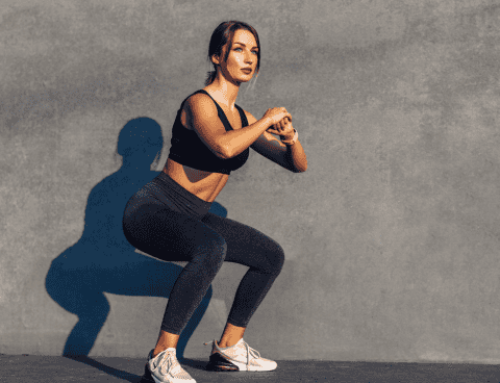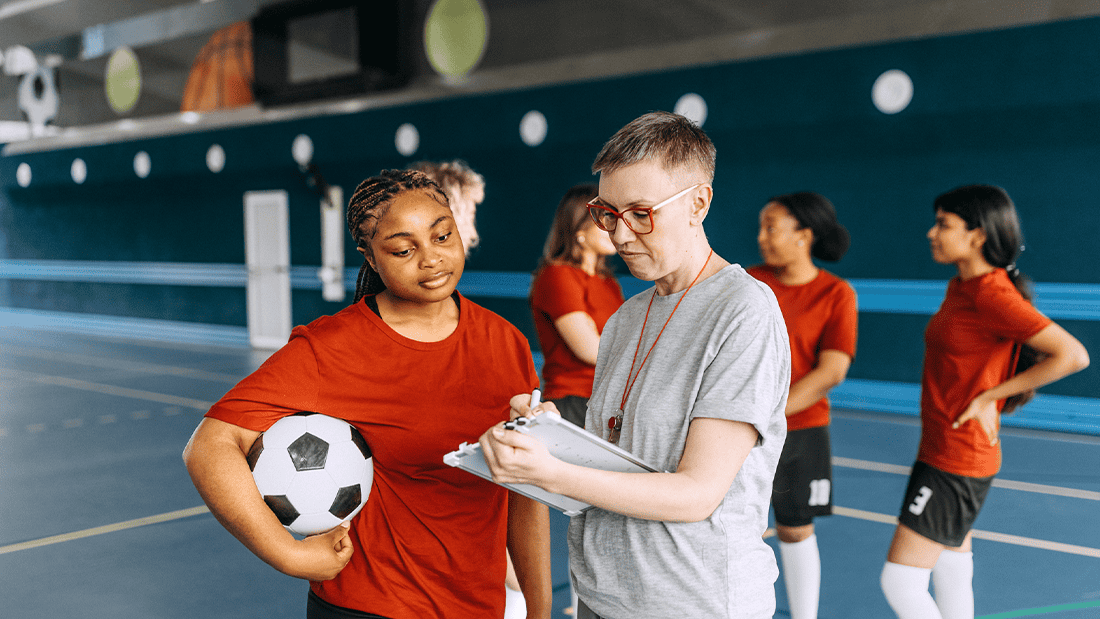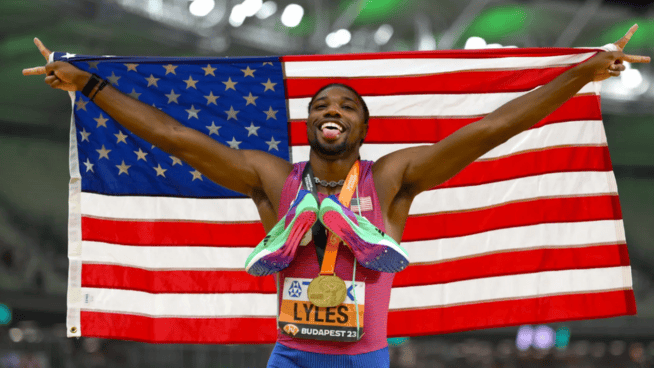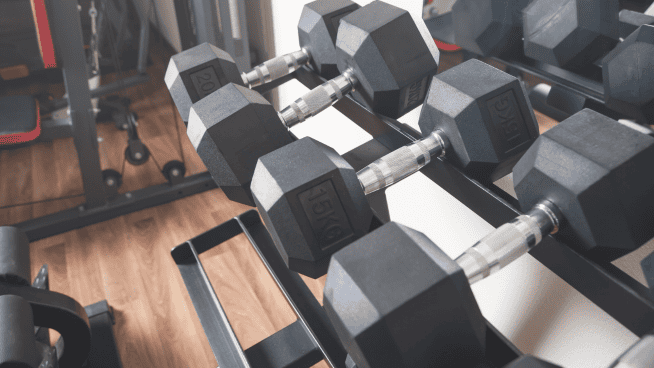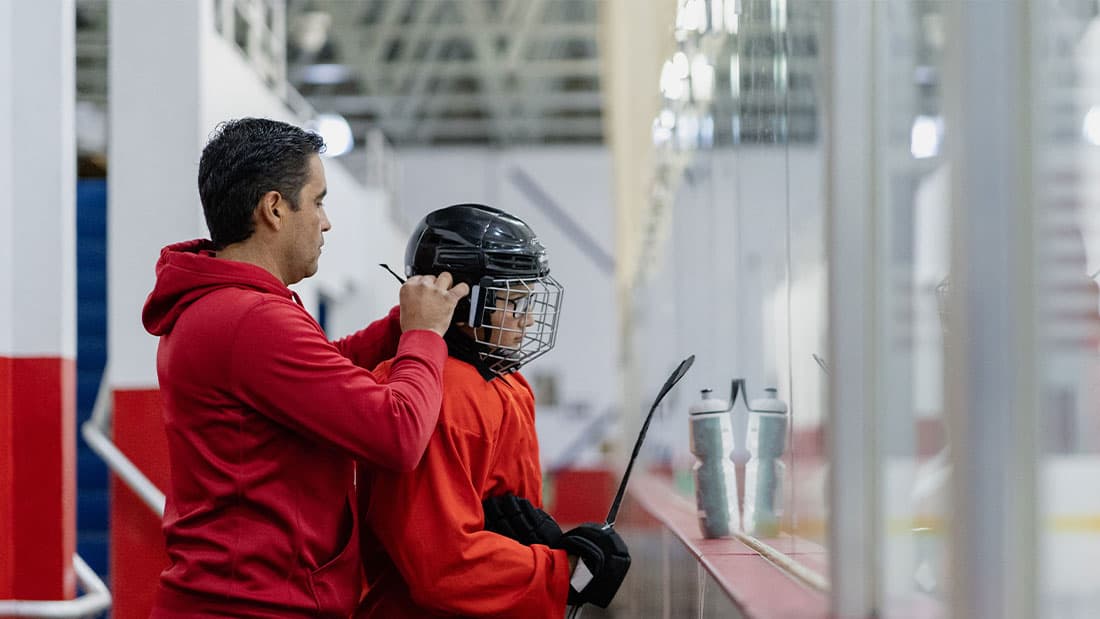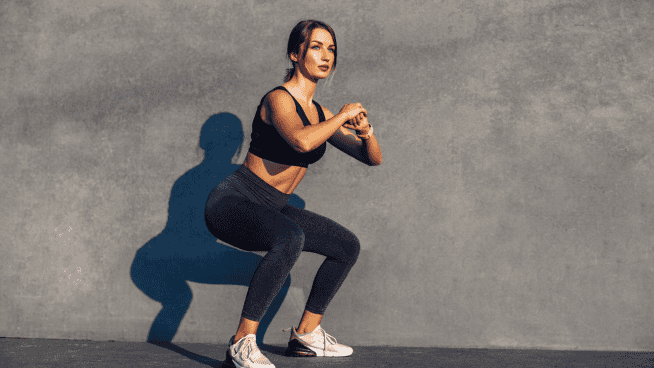What you eat before your workout will help you achieve two goals:
- Provide enough energy to power you through your workout or game without hitting a wall or feeling lethargic.
- Start the recovery and repair process much more quickly, so you are not as sore or achy after you train or play.
Food Equals Fuel
How much fuel you have in your tank will determine how long and hard you can perform.
Hydration Is Key
Regardless if it is game day or not, proper hydration is key to moving and feeling your best. The body uses water to transport oxygen and nutrients to your cells while washing waste products and toxins away from them. And when it comes to your performance, a drop in just one percent of hydration levels can result in a 10 to 15 percent decrease in maximal strength and power output. Simply put, if you are just a little bit dehydrated before a workout or game, you may not jump as high, be as quick to react, run as fast, or be as strong as if you were well hydrated.
Aim for at least 0.5 to 1 ounce of water per pound of body weight each day. A typical-sized plastic water bottle is 16 ounces, so for a 150-pound person, they would need at least 75 to 150 ounces of water per day (at least 5 to 9 water bottles per day). Before a workout or game, drink at least 12 to 16 ounces of water and be sure to sip on a sports beverage or water throughout the activity.
What foods to eat before a workout or game
How much time you have before your workout or game will determine what and how much you can eat. Here are some suggestions when time is a factor:
Option 1: Eat a regular, balanced meal, 2 to 3 hours before a workout or game
If it takes you a long time to digest your food or you’re able to set aside some time to sit down in a calm environment, eat a normal meal filled with foods that you enjoy eating. You know digest well for you — this is not the time to try out new dishes. Fill your plate with a mixture of carbs, fats, veggies, and protein that will promote sustained energy levels.
Use this guide to build the perfect plate:
- Between 1-2 palm-sized portions of protein-rich foods like eggs, meat, seafood, deli meat, tofu, tempeh, or Greek yogurt
- 1-2 fist-sized portions of veggies you enjoy eating like spinach, broccoli, bell peppers, cucumbers, onion, tomatoes, or salsa
- 1-2+ cupped-hand sized portions of carbohydrates like rice, beans, potatoes, 100% whole wheat or sprouted grain bread, oats, sweet potatoes, or fresh fruit
- About 1-2 thumb-sized portions of fat dense foods like olive oil, avocado, hummus, and various nuts or seeds
- 12-16 ounces of water (a big glass of water)
Option 2: Eat a snack full of fast-digesting foods at least 60 to 90 minutes before a workout or game.
Whether you forgot to eat, are on the go, or you prefer eating closer to activity, eat foods rich in carbohydrates. These are easy and quick to digest and some protein to provide energy without stomach discomfort or cramping.
Here are some go-to options that you can pack in your bag, grab at a gas station, or pick up at a convenience store:
- Fresh fruit like apples, blueberries, blackberries, strawberries, bananas, oranges, kiwi, nectarines, etc.
- Rice cake, whole-grain bread, or a whole-grain wrap with nut butter and fresh jam or fruit
- Whole fruit-based smoothie
- Greek yogurt topped with fresh fruit
- Dried fruit or a dried fruit-based bar like Lara Bar or Kind Bar
- Fresh granola or a minimally processed granola bar
- Oatmeal topped with fresh fruit
- Trail mix with dried fruit
- Applesauce
Try to limit fiber, fat, and added sugar close to game time. Fiber and fat take a long time to digest, so if you eat these close to competing (60 minutes or less), you may experience cramps and indigestion or feel sluggish and heavy. Added sugar creates large energy crashes that will not support sustained energy levels and may leave you feeling sluggish when you are playing.
Try to limit these foods at least 45 to 60 minutes before the activity:
- Raw, whole vegetables
- Large quantities of cheese, yogurt, or milk
- Beans or lentils
- Avocado and large quantities of nuts
- Energy drinks or packaged energy bars
- Candy
- Fast food
- Dense and or large meals like pasta or sandwiches
To summarize, here are some examples of foods and meals to eat in relation to how much time you have before activity:
If Your Workout Starts Within 2 to 3 Hours or More
- Sandwich on whole-grain bread, lean protein, and a side salad
- Egg omelet and whole-grain toast topped with avocado spread and a cup of fruit
- Lean protein, brown rice, and roasted vegetables
If Your Workout Starts Within 60 to 90 Minutes
- Protein smoothie made with milk or nut milk, protein powder, nut butter, banana, and mixed berries
- A cup of oatmeal topped with banana and sliced almonds
- Natural almond butter and fruit preserve sandwich on whole-grain bread
- Greek yogurt topped with fruit
If Your Workout Starts Within 60 Minute or Less
- Dried fruit-based bar with protein and wholesome ingredients
- A piece of fruit, such as a banana, orange, or apple
- A handful of dried fruit
- Applesauce
It all comes down to individualizing your meals by experimenting with what works best for you. Use your practices or other meals on non-workout days to try out combinations of foods. Make some mental notes on what made you feel energized, strong, and ready to play while also keeping a note of the foods that made you feel lethargic and slow. Be your own detective and learn what your body needs to perform at its highest level.
RECOMMENDED FOR YOU
MOST POPULAR
What you eat before your workout will help you achieve two goals:
- Provide enough energy to power you through your workout or game without hitting a wall or feeling lethargic.
- Start the recovery and repair process much more quickly, so you are not as sore or achy after you train or play.
Food Equals Fuel
How much fuel you have in your tank will determine how long and hard you can perform.
Hydration Is Key
Regardless if it is game day or not, proper hydration is key to moving and feeling your best. The body uses water to transport oxygen and nutrients to your cells while washing waste products and toxins away from them. And when it comes to your performance, a drop in just one percent of hydration levels can result in a 10 to 15 percent decrease in maximal strength and power output. Simply put, if you are just a little bit dehydrated before a workout or game, you may not jump as high, be as quick to react, run as fast, or be as strong as if you were well hydrated.
Aim for at least 0.5 to 1 ounce of water per pound of body weight each day. A typical-sized plastic water bottle is 16 ounces, so for a 150-pound person, they would need at least 75 to 150 ounces of water per day (at least 5 to 9 water bottles per day). Before a workout or game, drink at least 12 to 16 ounces of water and be sure to sip on a sports beverage or water throughout the activity.
What foods to eat before a workout or game
How much time you have before your workout or game will determine what and how much you can eat. Here are some suggestions when time is a factor:
Option 1: Eat a regular, balanced meal, 2 to 3 hours before a workout or game
If it takes you a long time to digest your food or you’re able to set aside some time to sit down in a calm environment, eat a normal meal filled with foods that you enjoy eating. You know digest well for you — this is not the time to try out new dishes. Fill your plate with a mixture of carbs, fats, veggies, and protein that will promote sustained energy levels.
Use this guide to build the perfect plate:
- Between 1-2 palm-sized portions of protein-rich foods like eggs, meat, seafood, deli meat, tofu, tempeh, or Greek yogurt
- 1-2 fist-sized portions of veggies you enjoy eating like spinach, broccoli, bell peppers, cucumbers, onion, tomatoes, or salsa
- 1-2+ cupped-hand sized portions of carbohydrates like rice, beans, potatoes, 100% whole wheat or sprouted grain bread, oats, sweet potatoes, or fresh fruit
- About 1-2 thumb-sized portions of fat dense foods like olive oil, avocado, hummus, and various nuts or seeds
- 12-16 ounces of water (a big glass of water)
Option 2: Eat a snack full of fast-digesting foods at least 60 to 90 minutes before a workout or game.
Whether you forgot to eat, are on the go, or you prefer eating closer to activity, eat foods rich in carbohydrates. These are easy and quick to digest and some protein to provide energy without stomach discomfort or cramping.
Here are some go-to options that you can pack in your bag, grab at a gas station, or pick up at a convenience store:
- Fresh fruit like apples, blueberries, blackberries, strawberries, bananas, oranges, kiwi, nectarines, etc.
- Rice cake, whole-grain bread, or a whole-grain wrap with nut butter and fresh jam or fruit
- Whole fruit-based smoothie
- Greek yogurt topped with fresh fruit
- Dried fruit or a dried fruit-based bar like Lara Bar or Kind Bar
- Fresh granola or a minimally processed granola bar
- Oatmeal topped with fresh fruit
- Trail mix with dried fruit
- Applesauce
Try to limit fiber, fat, and added sugar close to game time. Fiber and fat take a long time to digest, so if you eat these close to competing (60 minutes or less), you may experience cramps and indigestion or feel sluggish and heavy. Added sugar creates large energy crashes that will not support sustained energy levels and may leave you feeling sluggish when you are playing.
Try to limit these foods at least 45 to 60 minutes before the activity:
- Raw, whole vegetables
- Large quantities of cheese, yogurt, or milk
- Beans or lentils
- Avocado and large quantities of nuts
- Energy drinks or packaged energy bars
- Candy
- Fast food
- Dense and or large meals like pasta or sandwiches
To summarize, here are some examples of foods and meals to eat in relation to how much time you have before activity:
If Your Workout Starts Within 2 to 3 Hours or More
- Sandwich on whole-grain bread, lean protein, and a side salad
- Egg omelet and whole-grain toast topped with avocado spread and a cup of fruit
- Lean protein, brown rice, and roasted vegetables
If Your Workout Starts Within 60 to 90 Minutes
- Protein smoothie made with milk or nut milk, protein powder, nut butter, banana, and mixed berries
- A cup of oatmeal topped with banana and sliced almonds
- Natural almond butter and fruit preserve sandwich on whole-grain bread
- Greek yogurt topped with fruit
If Your Workout Starts Within 60 Minute or Less
- Dried fruit-based bar with protein and wholesome ingredients
- A piece of fruit, such as a banana, orange, or apple
- A handful of dried fruit
- Applesauce
It all comes down to individualizing your meals by experimenting with what works best for you. Use your practices or other meals on non-workout days to try out combinations of foods. Make some mental notes on what made you feel energized, strong, and ready to play while also keeping a note of the foods that made you feel lethargic and slow. Be your own detective and learn what your body needs to perform at its highest level.


